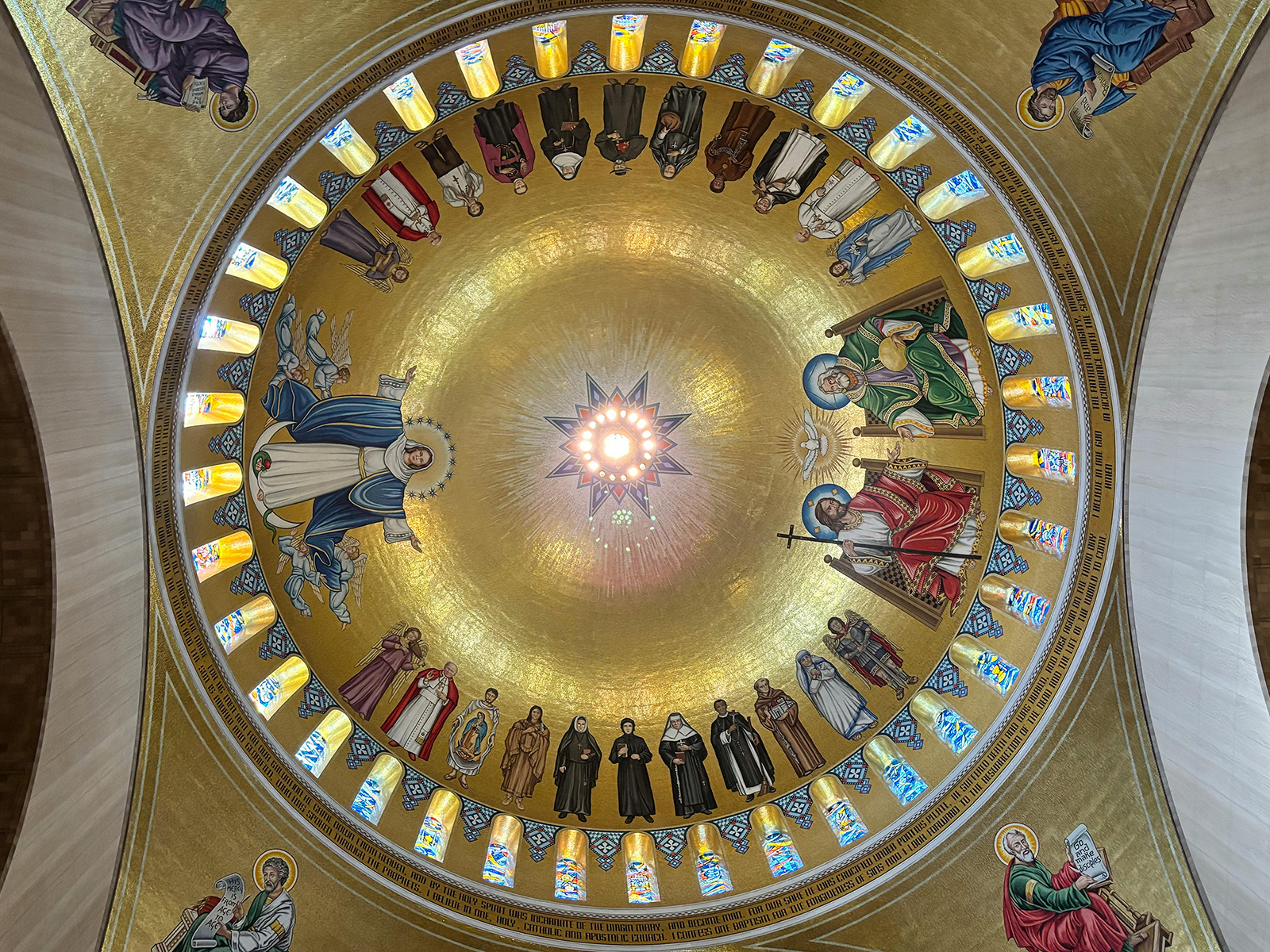
(RNS) — Did you miss President Trump’s All Saints’ Day message?
I thought so. Herewith, then, is a report on one of the most remarkable religious pronouncements ever to emanate from the White House.
It starts like this: “On All-Saints’ Day, the First Lady and I join Christians across our Nation in celebrating the saints who have gone before us and now share in the glory of God.”
For starters, most Christians in America don’t observe All Saints’ Day. Lutherans, who (Protestants that they are) by and large take a dim view of the cult of saints, on Nov. 1, do honor all those who have died in the Christian faith. Other Protestant denominations, as well as Pentecostals and non-denominational Christians, don’t bother with it at all.
That leaves Roman Catholics, who use the day to remember their canonized saints, and Episcopalians, who designate it as a feast to commemorate all saints known and unknown. As for the Eastern Orthodox, their Sunday for All Saints’ takes place half a year later, after Pentecost.
Anyway, paragraph 2 of Trump’s statement goes like this:
From our earliest days, the United States has drawn inspiration from holy men and women whose witness shaped our people and deepened our faith. The Blessed Virgin Mary, Patroness of the United States, has long been honored as a symbol of grace for our country. Saint Frances Xavier Cabrini poured out her life in service to the most poor and needy among us; Saint Elizabeth Ann Seton formed generations through her schools of faith and learning; and Saint John Neumann led his flock with humility, courage, and unrelenting devotion. Their example, and those of all the saints, demonstrates that faith transforms nations as surely as it transforms hearts.
Frances Cabrini, canonized in 1946, and Elizabeth Ann Seton, canonized in 1975, each founded an order of nuns. John Neumann, canonized in 1977, was the fourth bishop of Philadelphia.
As for Jesus’ mother, in 1846 America’s Catholic bishops made “the Blessed Virgin Mary conceived without sin” patroness of the United States in a decree that was confirmed by the Vatican the following year. “Conceived without sin” refers to the distinctly Catholic doctrine of the Immaculate Conception, which Pope Pius IX established as dogma in 1854.
All in all, it’s hard to imagine a presidential message more Catholic than this. (It’s more Catholic than the one issued this year by the president of the Philippines, a country that is 80% Catholic.) Had John F. Kennedy or even Joe Biden put out anything like it, there would have been cries of protest. Somewhere, the Know Nothings, who heartily denounced popish influence, are turning over in their graves.
Which leads one to wonder who conceived of the thing. The First Lady is a Catholic, as is Vice President JD Vance, who converted to the faith six years ago. But if I had to nominate an author, it would be Robert Barron, Catholic bishop of the Diocese of Winona-Rochester in Minnesota and founder of Word on Fire, a conservative Catholic media organization.
At the National Day of Prayer last May 1, when the president signed an executive order creating his Religious Liberty Commission, Barron prayed at the White House and was named to the commission. He could have come up with the very idea of a presidential All Saints’ Day message. It’s never been done before, so far as I can tell.
One more thing. In paragraph 4, the message declares, “We are standing firm against those who seek to persecute or marginalize people of faith, protecting churches, schools, and communities from religious discrimination, and ensuring that Christian values maintain their rightful place at the center of American life.”
In recent years, scholars have gauged Americans’ support for Christian nationalism by how much they agree with sets of statements that include the following: “The federal government should advocate Christian values” (Baylor Religion Survey) and “U.S. laws should be based on Christian values” (PRRI).
The Trump White House just scored high on that one.
